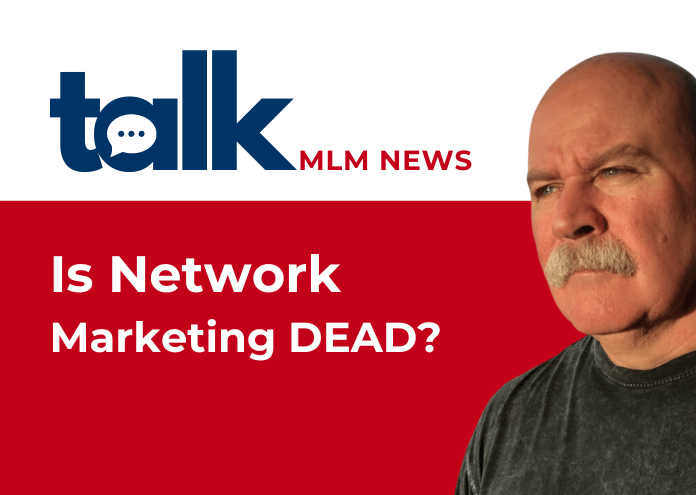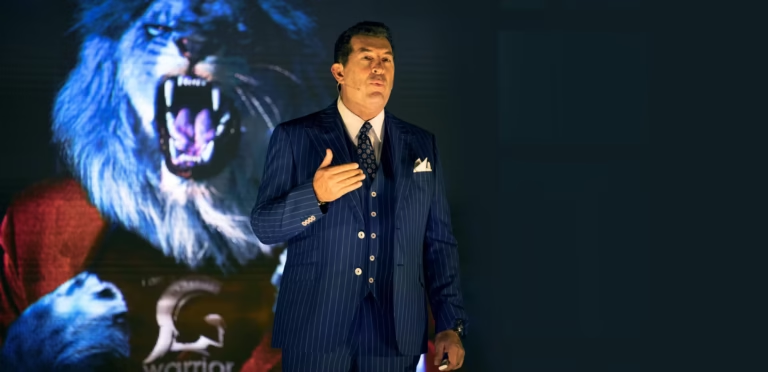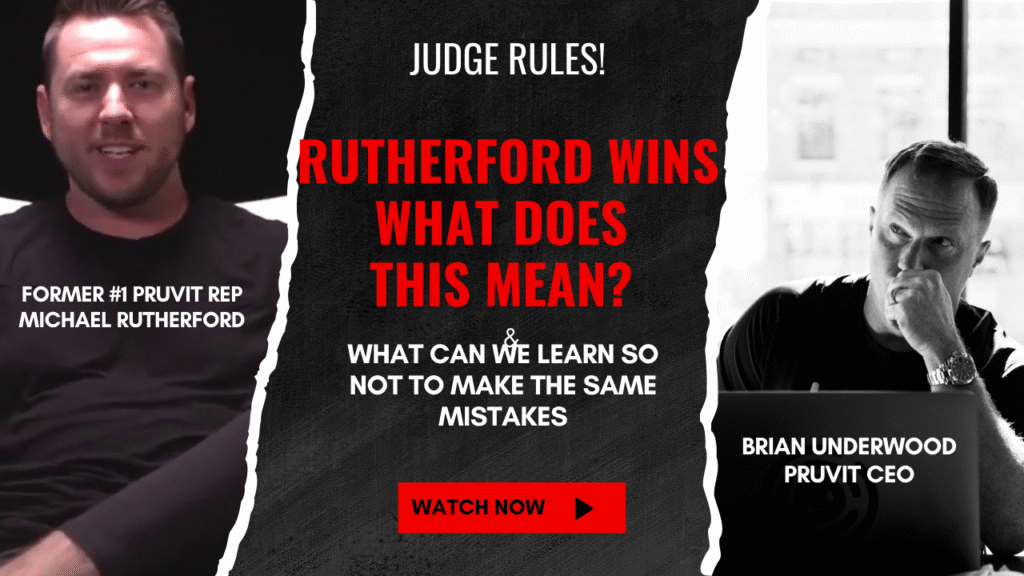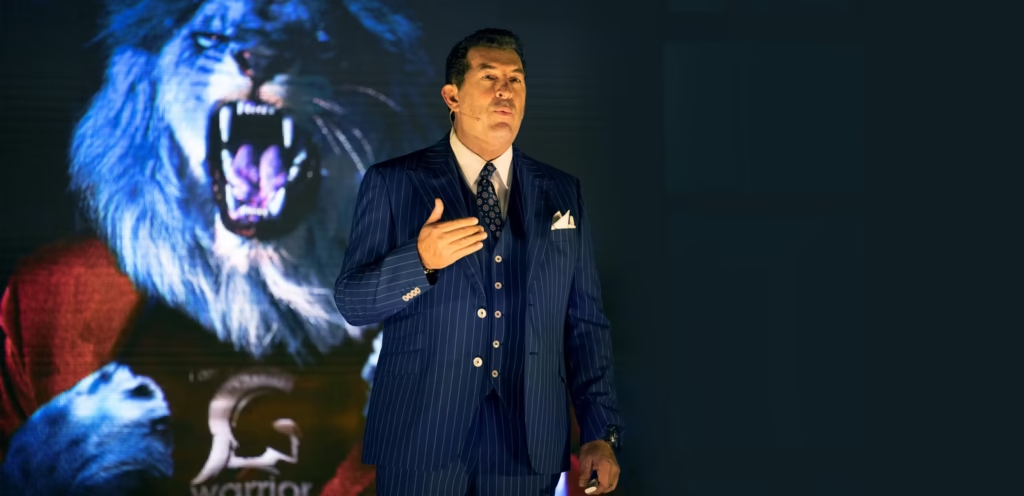What Makes Me an Authority in Crypto, AI, Fintech, Communications, and Compensation Structures?
Here is a little background; from this info, you can decide whether you want to read further! As a Network Marketing Hall of Fame inductee, I bring over 40 years of experience in direct sales, MLM, communications, compensation structures, and emerging technologies. As CEO of Deep South Companies Inc., I specialize in trust-inspired, purpose-driven communication frameworks, neuromarketing, AI-driven compliance, and risk mitigation for Fintech organizations, specifically around blockchain, registries, parametric cell insurance, and Real World Assets (RWAs) ventures. I also craft compliant compensation models for companies like Conklin Company, Promptings (Send Out Cards), Millionaire Man Cave, Isodiol, and others.
In 2023, I contributed to the launch of Flag Blockchain as a former Board Member of Flag Media Group and as its chief compliance officer. In 2024, we transferred that project to Pulse (Parler/Optio parent). I currently advise on AI-driven compliance at Zaivio, collaborating with founder Mike Magolnick. I also work closely with fintech companies presently developing projects in North America, Europe, Asia, and South America. You can find more info on my background at TroyDooly.com.
I also want to disclose that in 2013, I settled SEC allegations under Section 17(b) of the Securities Act for promoting ZeekRewards.com, a $600M Ponzi/pyramid scheme, without disclosing $6,000 monthly compensation from Rex Venture Group, as detailed in BehindMLM’s “Dooly pimps Zeek Rewards, fails to disclose compensation” (2013). I agreed to disgorge $3,000.00, $98.81 in prejudgment interest, and a $3,000.00 civil penalty, with no admission of guilt (SEC Order, September 30, 2013). This was a “pivotal moment” for ethical practices, strengthening my emphasis on transparency.
As a recognized authority and specialized analyst in financial fraud, I’ve studied over 90,000 SEC, CFTC, and FTC case files and studied more than 2,700 hours of fintech fraud-related videos. I served as an expert witness in a high-profile, six-year, $150 million crypto Ponzi/pyramid scheme, fraud, and unregistered securities case, collaborating closely with the legal defense team. Partnering with investigative journalists at Newsweek and Bloomberg, I’ve gained deep insights into the personalities driving some of the most notorious crypto, FOREX, and AI trading scams, particularly those tied to the MLM community.

Executive Summary: TEXITcoin’s High-Risk Profile
Are you considering investing in TEXITcoin (TXC), the Texas-focused cryptocurrency promising passive income through virtual mining seats? With claims of over $100M raised and 40,000+ miners, TXC positions itself as a “Bitcoin redo” for honest trade and Texas independence.
But amid rising scam alerts and regulatory scrutiny, is it worth the risk? In this comprehensive TEXITcoin risk assessment, we break down the business model, tokenomics, affiliate program, and legal compliance, drawing on official sources, third-party analyses, and 2025 market data.
We evaluate TXC against the Howey, Koscot, and Torres Tests, revealing critical flaws: unregistered securities, pyramid scheme traits, and Ponzi-like payout structures. No regulatory filings (SEC, TSSB, TDB) exist, and scam allegations dominate online sentiment. Spoiler: The risks are extremely high—proceed with caution.
TEXITcoin (TXC) Business Model: Strengths and Weaknesses
TEXITcoin operates as a Layer 1 proof-of-work cryptocurrency, forked from Litecoin, with a focus on Texas-based mining to promote financial independence and honest trade. Its business model centers on selling virtual mining seats starting at $995, which fund centralized mining operations and provide buyers with daily TXC payouts for up to 138 years.
The Supernova Club affiliate program drives growth through a binary referral system, offering commissions up to $3,000 weekly per position and bonuses like free seats for referrals. TEXITcoin claims to have raised over $100M, 40,000+ miners, and sponsorships (e.g., the Dallas Stars NHL), but these claims lack independent verification.
A whitepaper (available as PDFs on external sites like Squarespace and Heyzine) outlines the vision but is promotional, lacking technical audits or detailed roadmaps. No Decentralized Autonomous Organization (DAO) governs the project, and no regulatory registrations (e.g., SEC, CFTC, Texas State Securities Board) are evident, flagging it as unregulated.
The model fails the Howey Test, classifying mining seats as unregistered securities, and exhibits pyramid scheme traits under the Koscot Test due to its recruitment-heavy rewards structure. Scam allegations are widespread across reviews, Reddit, X, TikTok, and crypto media, citing hashrate discrepancies, centralization under founder Bobby Gray, and misleading claims. YouTube videos defend legitimacy but fail to address core concerns.
Positives:
- Texas-centric appeal fosters a strong community, with claims of 40,000+ miners and active engagement on social platforms.
- The passive mining model lowers technical barriers for retail participation.
Concerns:
- Crowdsourced funding resembles unregistered crowdfunding, risking violations of the JOBS Act (e.g., no Reg CF disclosures or accredited investor checks).
- Heavy reliance on affiliate referrals signals potential pyramid scheme characteristics, amplified by unverified claims and a lack of transparency.
Risk Factor: High (8/10) – The innovative Texas focus is overshadowed by opaque operations and regulatory red flags, inviting scrutiny from investors and regulators alike.
Related Reading: Best Crypto Mining Investments 202
Definition Section: Key Terms and Phrases for TEXITcoin SuperNova Program
Operational Terms (SuperNova Program and TEXITcoin)
- Affiliate: An individual participating in TEXITcoin’s SuperNova program who promotes the project, recruits new participants, and earns rewards (cash or hash power) based on their team’s purchased seats and activities.
- Compensation Plan (Comp Plan): The SuperNova system outlining how affiliates earn rewards through points from purchased seats, team-building, and recruitment, with weekly caps and point rollovers to ensure sustainability.
- Hash Power: Computational power (measured in megahashes per second, MH/s) allocated to affiliates for mining TEXITcoin (TXC). Each purchased seat provides 100 MH/s, and Passive Rangers may earn additional hash power as a reward.
- Leg: A branch of an affiliate’s downline in the binary MLM structure, consisting of the Power Leg (built by the sponsor or upline) and the Pay Leg (built by the affiliate). Points from both legs contribute to rewards.
- Miner: An individual who purchases mining shares or nodes (seats) to contribute computational power to the TEXITcoin blockchain, earning TXC rewards and/or affiliate commissions through the SuperNova program.
- Mining Share/Seat: A purchasable unit (minimum $1,000, maximum 9 seats or $9,000 per person) that grants 100 MH/s of mining power and counts as one point in the SuperNova compensation plan. Required for affiliate participation.
- Multi-Level Marketing (MLM): A business model where participants earn income by selling products/services (e.g., TXC or mining shares) and recruiting others into a hierarchical team, earning bonuses from downline activity.
- One-Leg Stacking Strategy: A team-building approach where affiliates focus recruitment on their Pay Leg while relying on their sponsor’s efforts for the Power Leg, accelerating point accumulation and rewards.
- Passive Ranger: An affiliate who stops actively recruiting but continues earning rewards from prior team-building efforts, receiving additional hash power instead of cash to boost TXC mining output.
- Points: Units earned in the SuperNova program based on purchased seats (1 seat = 1 point). Points are counted weekly from both legs (up to a 9-point cap per leg) and determine cash or hash power rewards.
- Power Leg: The leg of an affiliate’s binary structure built primarily by their sponsor or upline, contributing points toward rewards without requiring the affiliate’s direct recruitment effort.
- Pay Leg: The leg of an affiliate’s binary structure that the affiliate actively builds by recruiting new Miners and generating points through their seat purchases.
- Rapid Rewards: The SuperNova commission system where affiliates earn cash (Active Rangers) or hash power (Passive Rangers) based on points from team seat purchases, subject to weekly caps and rollovers.
- Roll Over: The process where unpaid points (up to 9 per leg) carry forward indefinitely until cashed out, ensuring affiliates do not lose earned points.
- SuperNova: TEXITcoin’s MLM-based affiliate marketing program, using a binary structure to reward participants for purchasing mining shares and recruiting others to build a sustainable mining network.
- TEXIT Ranger: A milestone status for affiliates with consistent point accumulation and commissions. Active Rangers continue recruiting and earn cash, while Passive Rangers stop recruiting and earn hash power.
- TXC (TEXITcoin): The native cryptocurrency of the TEXITcoin Layer 1 blockchain, inspired by Litecoin, mined by participants and used for transactions within its merchant ecosystem.
- Weekly Cap: A limit of 9 points per leg per week for counting toward rewards, designed to ensure the financial sustainability of the SuperNova program. Excess points may roll over but are not counted beyond the cap.
Regulatory Terms (Federal and State Context)
- Bank Secrecy Act (BSA): A U.S. federal law requiring financial institutions, including money services businesses (MSBs) like cryptocurrency exchangers, to maintain anti-money laundering (AML) programs, conduct know-your-customer (KYC) checks, and report suspicious activities to FinCEN.
- Commodity: Under U.S. law, a cryptocurrency like TXC (if not a security) is classified as a commodity by the Commodity Futures Trading Commission (CFTC), subject to regulation for derivatives, futures, or leveraged trading activities.
- Commodity Futures Trading Commission (CFTC): A federal agency overseeing commodities markets, including cryptocurrencies classified as commodities. It regulates activities like crypto futures or swaps but does not typically require licensing for basic issuance or mining.
- Financial Crimes Enforcement Network (FinCEN): A U.S. Treasury Department bureau that enforces the BSA, requiring money services businesses (e.g., crypto exchangers or administrators like TEXITcoin) to register as MSBs and comply with AML/KYC requirements.
- Howey Test: A legal standard used by the SEC to determine if an asset or scheme (e.g., TEXITcoin’s mining shares or MLM rewards) qualifies as an investment contract (security). It evaluates: (1) investment of money, (2) in a common enterprise, (3) with expectation of profits, (4) from the efforts of others. TEXITcoin’s structure likely meets these criteria.
- Investment Contract: A type of security under U.S. law, often applied to crypto schemes where participants invest money expecting profits from others’ efforts (e.g., TEXITcoin’s mining shares or MLM bonuses). Requires SEC registration or an exemption.
- Koscot Test: A legal framework used by the Federal Trade Commission (FTC) to identify pyramid schemes. It examines whether earnings primarily come from recruitment rather than product sales. TEXITcoin’s heavy reliance on recruitment bonuses risks classification as a pyramid scheme.
- Money Services Business (MSB): A business engaging in activities like currency exchange or transmission (e.g., converting TXC to USDT or fiat), requiring registration with FinCEN and compliance with AML/KYC regulations.
- Money Transmitter License (MTL): A state-level license required in many U.S. states (e.g., Texas, if fiat is involved) for businesses transmitting money or virtual currencies. Texas exempts decentralized crypto transmission but may require an MTL for TEXITcoin’s USDT-to-TXC exchanges.
- Pyramid Scheme: An illegal business model where earnings primarily come from recruiting new participants rather than selling a legitimate product or service. TEXITcoin’s MLM structure, with capped cash rewards and recruitment focus, risks scrutiny under FTC and Texas anti-pyramid laws.
- Securities and Exchange Commission (SEC): A federal agency regulating securities markets. It may classify TEXITcoin’s mining shares or MLM rewards as securities (per the Howey Test), requiring registration (e.g., Form S-1) or exemptions (e.g., Reg D).
- Texas Department of Banking (TDB): The Texas state agency overseeing money services businesses. It requires an MTL for activities involving fiat-to-crypto exchanges but exempts decentralized virtual currency transmission (per 2021 guidance).
- Texas State Securities Board (TSSB): The Texas agency regulating securities offerings. If TEXITcoin’s mining shares or MLM rewards are deemed securities, registration or compliance with Texas securities laws is required.

Does TEXITcoin Pass the Howey Test? Securities Risk Breakdown
The Howey Test determines if a transaction qualifies as an “investment contract” under SEC rules, requiring registration unless exempt. TEXITcoin’s mining seat model appears to fail all four prongs, suggesting it may constitute a potential unregistered security.
DISCLAIMER: Let me be clear: ONLY a regulatory agency or a court of law can determine whether a company or individual is actively participating in the marketing of unregistered securities.
| Prong | TEXITcoin Analysis | Compliance? |
|---|---|---|
| Investment of Money | Upfront payments of $995+ for mining seats, as promoted on mineTXC.com and texitcoinprice.com. | Fails – Clear financial commitment required. |
| Common Enterprise | Funds are pooled to build a centralized Texas mine, with profits tied to collective operations (texitcoin.org mission). | Fails – Horizontal pooling evident. |
| Expectation of Profits | Daily TXC payouts and affiliate commissions are hyped as wealth-building, with texitcoinprice.com claiming 3,333% growth since launch. | Fails – Promotes significant returns. |
| Efforts of Others | Mining operations are managed by Bobby Gray’s team, with buyers passive (YouTube: “Future of Money”). | Mining operations are managed by Bobby Gray’s team, with buyers passive (YouTube: “Future of Money”). |
Conclusion: TEXITcoin’s model seems to meet all Howey criteria, classifying mining seats as unregistered securities. No exemptions (e.g., Reg D) are mentioned across platforms, increasing the risk of SEC enforcement actions, such as fines or operational halts.
Positives:
- Limited disclaimers on speculation risks show some awareness of regulatory concerns.
- The model attempts to tie returns to a tangible product (TXC mining output).
Concerns:
- No SEC or TSSB registration, mirroring halted ICOs like BitConnect (TSSB, 2018).
- Promotional hype without compliance disclosures risks misleading investors.
Risk Factor: Extremely High (9/10) – The lack of explanation, such as a Legal Opinion letter or a No-Action Letter from the SEC, as to why no registration is needed, and the passive income structure invites significant SEC scrutiny, potentially leading to severe penalties or shutdowns.
Koscot Test: Pyramid Scheme Red Flags in Supernova Club
The Koscot Test (FTC v. Koscot, 1975) identifies pyramid schemes by assessing if rewards primarily come from recruitment rather than retail sales to ultimate users. The Supernova Club’s binary referral system fails this test, raising significant concerns.
| Element | Commissions from downline seat sales ($3,000/week max) and “1-2-FREE” bonuses dominate (mineTXC.com, YouTube tutorials). | Fails – Recruitment is the primary driver. |
| Retail Sales | TXC merchant use is minimal, with focus on internal seat sales (texitcoin.org, texitcoinprice.com). | Fails – Lacks genuine retail utility. |
| Sustainability | 1M seat cap claimed, but growth relies on continuous referrals; recent 2,102 new miners underscore this (X posts). | Fails – Unsustainable without new entrants. |
Neora Refinement: In FTC v. Neora LLC (N.D. Texas, 2023), the court refined Koscot, emphasizing operational practices and requiring evidence that rewards are funded by recruitment, not product sales. Neora passed because ~80% of revenues came from preferred customer sales, not incidental purchases. TEXITcoin’s internal seat sales and minimal external TXC use suggest rewards are incidental to participation, failing even Neora’s nuanced test.
Based on the available information I could uncover about TEXITcoin’s affiliate model, it does not appear possible to become a SuperNova affiliate to market TEXITcoin without purchasing nodes. Here’s why:
- SuperNova Affiliate Program Structure: TEXITcoin’s SuperNova affiliate program operates on a multi-level marketing (MLM) model with a binary compensation structure. Participation typically requires purchasing “mining shares” or nodes, with a minimum investment of $1,000 (up to a maximum of $9,000 for nine shares). These shares are tied to earning daily TXC rewards and referral bonuses for recruiting others. Promotional materials and discussions on platforms like Reddit and X emphasize that active participation in the affiliate program requires this buy-in, with no mention of a free or non-investment-based marketing option.
- No Evidence of Non-Investment Affiliate Role: Unlike some MLM programs that offer affiliate-only roles without upfront costs (e.g., commission-based marketing), TEXITcoin’s structure ties marketing and earning potential directly to node ownership or share purchases. The SuperNova program’s focus on recruitment bonuses and mining rewards suggests that all affiliates are expected to invest in the system to access the compensation plan.
- Regulatory Context: As noted in prior articles, MLM crypto programs that require upfront investments for affiliate participation often raise red flags under FTC pyramid scheme rules (per the Koscot Test) and SEC securities laws (per the Howey Test). TEXITcoin’s requirement to purchase nodes aligns with this pattern, reinforcing that marketing without investment is not offered.
If you want to confirm this directly, you could check TEXITcoin’s compensation plan website (texitcoinprice) or contact their support for any updated policies on affiliate participation.
Conclusion: The Supernova Club exhibits pyramid-scheme traits, with rewards tied more to recruitment than to retail TXC sales. The FTC could deem this deceptive under Section 5, risking shutdowns or fines similar to those in the 2019 crypto settlements ($4M+).
Positives:
- Commission caps and ethical training suggest attempts to avoid overt pyramid structures.
- Ties to a mining product provide a nominal retail basis.
Concerns:
- Recruitment-driven rewards mirror FTC-targeted schemes (e.g., 2018 crypto promoters).
- Multi-state pyramid bans (e.g., CA, FL) increase legal exposure, with potential fines of $10K+.
Risk Factor: Extremely High (9/10) – High likelihood of FTC classification as a deceptive pyramid, leading to severe regulatory consequences.
Torres Test: Inherent Fraud in the Affiliate Model
The Torres Test (Torres v. S.G.E. Mgmt., 5th Cir. 2016) refines Koscot for civil RICO claims, defining pyramid schemes as inherently fraudulent if participants pay for (1) product sales rights and (2) recruitment rewards unrelated to ultimate-user sales, concealing inevitable collapse. The Supernova Club fails, signaling significant FTC and RICO risks.
| Element | Supernova Analysis | Compliance? |
|---|---|---|
| Product Sales Right | Participants pay for mining seats to “mine” and potentially sell TXC, but the focus is internal (mineTXC.com, texitcoinprice.com). | Fails – Limited retail scope. |
| Recruitment Rewards | Commissions/bonuses from downlines (e.g., $3K/week, 1-2-FREE); minimal external sales (YouTube, X stats: 2,102 new miners). | Fails – Decoupled from users. |
| Inherent Deceptiveness | Participants pay for mining seats to “mine” and potentially sell TXC, but the focus is internal (mineTXC.com, texitcoinprice.com). | Participants pay for mining seats to “mine” and potentially sell TXC, but the focus is internal (mineTXC.com, texitcoinprice.com). |
Conclusion: The Supernova Club’s recruitment-driven structure exhibits inherent fraud, enabling RICO class actions without individualized reliance proof. FTC red flags include unsubstantiated earnings claims (e.g., $44K in 7 months on Instagram), mirroring 2019 crypto settlements ($4M+ fines).
Positives:
- Attempts to tie rewards to TXC mining output.
- Commission caps suggest limited growth.
Concerns:
- The recruitment focus masks the collapse risk, while Ponzi-like payouts from new funds continue.
- FTC could target deceptive marketing, especially in Texas’ Fifth Circuit jurisdiction.
Risk Factor: Extremely High (9/10) – Vulnerable to RICO claims and FTC enforcement, with significant legal and financial consequences.
Regulatory Landscape: No Registrations, High Exposure
TEXITcoin lacks registrations with federal agencies (SEC, CFTC, FCA) or state agencies (TSSB, TDB), and operates as an unregulated entity. Its crowdsourced model violates the JOBS Act (e.g., no Reg CF disclosures, no accredited investor checks). Money Transmitter Licenses (MTLs) are required for USDC payouts in Texas (TDB) and 47 other states (e.g., NY BitLicense, CA/IL MTLs), with violations risking fines ($500K+ in NY, $1M+ in CA).
Federal-Level Requirements
At the federal level, no single, comprehensive licensing regime mandates prior approval for all crypto projects like TEXITcoin. However, specific activities trigger registration or compliance:
- Securities and Exchange Commission (SEC): If TXC or mining shares are deemed “investment contracts” (e.g., via the Howey Test—expectation of profits from others’ efforts), they qualify as securities. The MLM referral bonuses and promises of passive mining rewards could constitute unregistered securities offerings, requiring SEC registration (e.g., Form S-1) or an exemption (e.g., Reg D). No evidence suggests TEXITcoin has filed such registrations, and ongoing SEC enforcement (e.g., against similar MLM cryptos like those in the 2023-2025 wave) implies potential violations.
- Commodity Futures Trading Commission (CFTC): TXC, as a non-security digital asset, is likely a commodity. If the project involves derivatives, futures, or leveraged trading, CFTC registration as a Commodity Pool Operator or a similar registration is required. Basic issuance and mining don’t trigger this, but any swaps or margin trading would.
- Financial Crimes Enforcement Network (FinCEN): Under the Bank Secrecy Act, entities that act as “money services businesses” (MSBs)—including exchangers or administrators of convertible virtual currency—must register with FinCEN as MSBs and implement AML/KYC programs. TEXITcoin’s sales of TXC for USDT and merchant network facilitation likely qualify it as an exchanger, requiring MSB registration (free, but with ongoing reporting). No public FinCEN records confirm compliance.
- Other: IRS treats crypto as property (no license required for issuance), but sales trigger reporting requirements. No federal “crypto license” exists, but non-compliance risks enforcement actions.
State-Level Requirements (Focus on Texas)
Crypto regulation is primarily state-driven for money transmission, with Texas being moderately permissive but still requiring licenses for certain activities:
- Texas Department of Banking (TDB): Texas does not require a money transmitter license (MTL) for transmitting decentralized virtual currencies like TXC alone (per 2021 guidance). However:
- Exchanging TXC for fiat (e.g., via USDT on-ramps) or custodial services would trigger an MTL under the Texas Money Services Act (Tex. Fin. Code § 151).
- If mining shares or TXC sales are securities, registration with the Texas State Securities Board (TSSB) is mandatory.
- The MLM structure could fall under Texas anti-pyramid laws (Bus. & Com. Code § 17.46), requiring no license but risking civil penalties if recruitment dominates over product value.
- Other States: If TEXITcoin operates or solicits nationwide (e.g., via online sales), MTLs are required in ~40 states (e.g., New York BitLicense for virtual currency businesses; California’s Money Transmission Act). Wyoming and Florida offer sandboxes exempting early-stage projects, but Texas lacks one. Non-compliance in states like Louisiana (Virtual Currency Business License) could halt operations.
No public records (as of October 2025) show TEXITcoin holding required licenses, and its MLM/crowdfunding elements have drawn scam allegations on platforms like Reddit, potentially inviting TSSB or SEC scrutiny.
Based on my understanding of the reviewed information, I believe there may be regulatory agencies that may expect and require TEXITcoin to register for licenses or approvals to fully operate its model legally:
- Federal: FinCEN MSB registration (mandatory for exchange activities); SEC registration if securities (highly likely due to MLM and shares).
- State (Texas): TDB MTL if fiat exchanges occur; TSSB for securities.
Without these, the project risks cease-and-desist orders, fines, or shutdowns (e.g., similar to SEC v. BitConnect). I recommend consulting legal experts or checking official databases (e.g., SEC EDGAR, FinCEN MSB list) for updates, as crypto enforcement evolves rapidly. If you provide more details on specific operations, I can refine this analysis.
Positives:
- Texas’s crypto-friendly stance (e.g., 2025 Bitcoin Reserve) provides a favorable backdrop.
Concerns:
- No SEC/TSSB filings despite securities-like features, mirroring halted ICOs (TSSB, 2018).
- Nationwide MTL non-compliance and pyramid bans (e.g., FL, IL class actions, $4M settlements) amplify exposure.
Risk Factor: Critical (9/10) – High risk of federal and multi-state enforcement, including fines and shutdowns.
Reputation Consensus: Scam Warnings Dominate
A 2025 search across mainstream news (Bloomberg, Reuters), crypto media (CoinDesk, CoinTelegraph, CryptoSlate), PR outlets (PRNewswire), and social platforms (Reddit, X, TikTok, Facebook, Bitcointalk) reveals a predominantly negative consensus on TEXITcoin’s reputation.
Crypto media like Disruption Banking (September 2, 2025) notes its Texas focus but questions its sustainability. Reddit (r/CryptoScams, r/theticket) and X posts (e.g., Peter Spina’s “scam” alerts) label it a “pump-and-dump” or “MLM pyramid.”
BehindMLM (August 2025) calls it “TXC mining investment fraud,” citing pyramid-like traits and unverified hashrate claims.
CoinMLS (Medium, September 2025) and TradersUnion flag billion-dollar pump concerns.
Positive sentiment is limited to official channels (X, Instagram, YouTube), praising payouts and community (40K+ miners). No mainstream news coverage; CoinMarketCap lists low volume ($201K). Over 80% negative sentiment dominates.
Positives:
- Official channels highlight community engagement and some user payout testimonials.
- Texas pride resonates with niche patriotic audiences.
Concerns:
- Widespread allegations of scams across forums and crypto media erode trust.
- Lack of audits and mainstream validation fuels skepticism.
Risk Factor: High (8/10) – Negative consensus significantly undermines investor confidence, increasing risk.
Overall Risks and Mitigation
Identified Risks
I believe TEXITcoin may face significant legal and regulatory risks due to its unregistered status and potential status as a security under the Howey Test. Due to these investment-like features and its lack of SEC or Texas State Securities Board (TSSB) filings, this exposes it to potential fines, operational halts, or shutdowns, similar to past crypto enforcement actions like BitConnect (TSSB, 2018).
The Supernova Club’s recruitment-driven model, in my opinion, fails both the Koscot and Torres Tests, signaling pyramid and Ponzi traits, with rewards funded by new entrants rather than retail sales, risking FTC action under Section 5 for deceptive practices. Financial volatility is high, with hype-driven pricing (e.g., $5.30 peak, 3,333% growth claims) and no intrinsic value to back it, making it vulnerable to collapse if recruitment slows.
Operationally, heavy centralization under founder Bobby Gray and the absence of independent audits raise concerns about mismanagement and transparency, with no DAO or community oversight. Reputationally, over 80% of online sentiment—spanning Reddit, X, TikTok, and crypto media—labels TXC a scam, severely eroding trust and increasing investor caution.
- Legal/Regulatory (Critical): Unregistered securities; JOBS Act and MTL non-compliance in Texas and 47 states (e.g., NY BitLicense, CA fines $1M+).
- Financial (High): Speculative pricing; Ponzi-like reliance on new funds.
- Operational (High): Centralized control; no audits or DAO governance.
- Reputation (High): Dominant scam allegations across platforms.
Positives:
- The Texas-centric narrative and community engagement appeal to patriotic investors.
- The passive mining model lowers technical barriers for retail participation.
Concerns:
- Failure to comply with the Howey, Koscot, and Torres Tests signals high legal exposure.
- Lack of transparency, unverified claims, and negative sentiment heighten the risk of collapse.
Risk Factor: Extremely High (9/10) – Avoid investment due to significant fraud indicators and regulatory vulnerabilities.
Mitigation Strategies
To navigate TEXITcoin’s risks, thorough due diligence is essential. Verify claims using blockchain explorers, regulatory databases (TSSB, SEC), and independent audits—none of which are currently available for TXC, a major red flag. Limit financial exposure to disposable funds to avoid losses from volatility or potential collapse, steering clear of FOMO-driven decisions fueled by promotional hype on YouTube or texitcoinprice.com.
Consult a Texas securities lawyer or crypto expert to assess compliance with securities, MLM, and money transmitter laws, especially given multi-state risks (e.g., NY, CA regulations). Monitor FTC alerts and social platforms (Reddit, X) for scam updates or enforcement actions, as negative sentiment dominates. Diversify investments with established cryptocurrencies like Bitcoin or Ethereum to balance risk, and set clear exit strategies, watching for signs of founder-led dumping or market saturation.
- DYOR: Verify claims via TSSB/SEC databases and blockchain explorers.
- Limit Exposure: Invest only what you can afford to lose entirely.
- Consult Experts: Engage a Texas securities lawyer or crypto advisor.
- Monitor: Track FTC alerts and social sentiment on Reddit/X.
- Diversify: Balance with established assets like BTC/ETH.
Disclaimer
Neither Troy Dooly nor TalkGigs.News has been paid for this TEXITcoin review. These are our independent opinions, based solely on evidence uncovered from the cited sources. We are committed to accuracy and will make corrections if new, credible evidence is presented. This is not financial advice; always conduct your own research before investing.
TalkGigs.News Disclaimer: This is not financial advice. Conduct your own research. Contact Us for custom analyses.
References
[0] TEXITcoin – https://texitcoin.org/
[1] Discover TEXITcoin – https://texitcoin.org/Discover-TEXITcoin.html
[2] The TEXITcoin Mission – https://texitcoin.org/The-TEXITcoin-Mission.html
[3] Privacy Policy – https://texitcoin.org/Privacy-Policy.html
[4] Tokenomics – https://texitcoin.org/Tokenomics.html
[5] News and Updates – https://texitcoin.org/News-and-Updates.html
[6] Rough TEXITcoin Presentation – https://texitcoin.org/news/Rough-TEXITcoin-Presentation.html
[7] A Second Chance for Crypto – https://texitcoin.org/news/A-Second-Chance-for-Crypto.html
[8] TEXITcoin X Profile – https://x.com/TEXITcoin
[9] TEXITcoin Instagram – https://www.instagram.com/texitcoin/
[10] TEXITcoin Facebook – https://www.facebook.com/p/TEXITcoin-61559875176657/
[11] X Posts from @TEXITcoin – Various, October 2025
[12] Texit Coin – YouTube Official Channel – https://www.youtube.com/@TexitCoin
[13] Texit: TXC Crypto Coin Playlist – https://www.youtube.com/playlist?list=PLA63YeQ7gKG08YSxyFrlkUI2c9ctQhWwy
[14] Bobby Gray – TEXITcoin: the Future of Money in Texas – https://www.youtube.com/watch?v=1cl6xcDVS9M
[15] Texitcoin Founder – Bobby Gray – Full Story – https://www.youtube.com/watch?v=PWVgCvxZBz8
[16] Is TEXIT coin a Scam? – https://www.youtube.com/watch?v=06T9i2EcnbI
[17] Registration Process – Texas State Securities Board – https://www.ssb.texas.gov/securities-professionals/regulation-securities/registration-process
[18] Cryptocurrency Enforcement – Texas State Securities Board – https://www.ssb.texas.gov/cryptocurrency-enforcement
[19] Regulation of Securities – https://www.ssb.texas.gov/securities-professionals/regulation-securities
[20] Bitcoin + online chain referral = illegal scheme | Consumer Advice – https://consumer.ftc.gov/consumer-alerts/2018/03/bitcoin-online-chain-referral-illegal-scheme
[21] FTC Shuts Down Promoters of Deceptive Cryptocurrency Schemes – https://www.ftc.gov/news-events/news/press-releases/2018/03/ftc-shuts-down-promoters-deceptive-cryptocurrency-schemes
[22] Texitcoin. Real or Scam? : r/CryptoScams – Reddit – https://www.reddit.com/r/CryptoScams/comments/1lebtcd/texitcoin_real_or_scam/
[23] Promoters of Deceptive Chain Referral Schemes Involving … – https://www.ftc.gov/news-events/news/press-releases/2019/08/promoters-deceptive-chain-referral-schemes-involving-cryptocurrencies-agree-settlement-ftc
[24] Is Texit Coin Too Good to Be True? – Disruption Banking – https://www.disruptionbanking.com/2025/09/02/is-texit-coin-too-good-to-be-true/
[25] SEC Charges Three So-Called Market Makers and Nine Individuals … – https://www.sec.gov/newsroom/press-releases/2024-166
[26] Offerings and Registrations of Securities in the Crypto Asset Markets – https://www.sec.gov/newsroom/speeches-statements/cf-crypto-securities-041025-offerings-registrations-securities-crypto-asset-markets
[27] Statement on Certain Proof-of-Work Mining Activities – SEC.gov – https://www.sec.gov/newsroom/speeches-statements/statement-certain-proof-work-mining-activities-032025
[28] SEC Staff Issues Statement on Crypto Asset Exchange-Traded … – https://www.dechert.com/knowledge/onpoint/2025/7/sec-staff-issues-statement-on-crypto-asset-exchange-traded-produ.html
[29] Crypto Assets | FINRA.org – https://www.finra.org/investors/investing/investment-products/crypto-assets
[30] MineTXC – https://minetxc.com/
[31] How to Buy Wrapped TXC (wTXC) on Uniswap – https://help.minetxc.com/how-to-buy-wrapped-txc-wtxc-on-uniswap-and-convert-it-back-to-txc/
[32] Mini DOGE 3 Setup Guide | mineTXC Help Center – https://help.minetxc.com/mini-doge-3-setup-guide/
[33] Jumpstart Our Business Startups (JOBS) Act – SEC.gov – https://www.sec.gov/about/divisions-offices/division-corporation-finance/jumpstart-our-business-startups-jobs-act
[34] Regulation Crowdfunding – SEC.gov – https://www.sec.gov/education/smallbusiness/exemptofferings/regcrowdfunding
[35] Texit Coin – Build Legacy Wealth Through Crypto Mining – https://texitcoinprice.com/
[36] Money Services Businesses | Texas Department of Banking – https://www.dob.texas.gov/money-services-businesses
[37] State Level MTL Requirements for U.S. Crypto Firms – Kelman PLLC – https://kelman.law/state-level-mtl-requirements-for-u-s-crypto-firms/
[38] State-Level Developments: The Regulatory Landscape for Digital … – https://www.paulhastings.com/insights/crypto-policy-tracker/state-level-developments-the-regulatory-landscape-for-digital-assets
[39] 50-State Review of Cryptocurrency and Blockchain Regulation – https://stevenscenter.wharton.upenn.edu/publications-50-state-review/
[40] Cryptocurrency Regulations by State – Surety Bond Professionals – https://www.suretybondprofessionals.com/cryptocurrency-regulations-by-state/
[41] Money Transmitter Licensing Guide For Fintech Startups – https://cornerstonelicensing.com/resources/money-transmitter-licensing-guide-for-fintech-startups/
[42] Cryptocurrency Laws and Regulations by State – Bloomberg Law – https://pro.bloomberglaw.com/practice-areas/technology/cryptocurrency-laws-and-regulations-by-state/
[43] [PDF] 50-STATE SURVEY: Money Transmitter Licensing Requirements … – https://abnk.assembly.ca.gov/sites/abnk.assembly.ca.gov/files/50%2520State%2520Survey%2520-%2520MTL%2520Licensing%2520Requirements%2872986803_4%29.pdf
[44] Virtual Currency Guidance | Texas Department of Banking – https://www.dob.texas.gov/consumer-information/virtual-currency-guidance
[45] US Crypto Regulation: Federal and State Guidelines – https://www.innreg.com/blog/us-crypto-regulation
[46] Multi-Level Marketing Businesses and Pyramid Schemes – https://consumer.ftc.gov/multi-level-marketing-businesses-pyramid-schemes
[47] Unpacking The Latest FTC Guidance On Multilevel Marketing – https://www.edgewortheconomics.com/insight-unpacking-latest-FTC-guidance-MLM
[48] [PDF] Earnings Claim Rule Regarding Multi-Level Marketing (Additional … – https://www.ftc.gov/system/files/ftc_gov/pdf/r111003earningclaimsanprm01132025.pdf
[49] FTC Continues to Target MLMs and Other “Money-Making … – https://federal-lawyer.com/ftc-continues-to-target-mlms-and-other-money-making-opportunity-sellers/
[50] [PDF] Earnings Claim Rule: Notice of Proposed Rulemaking – https://www.ftc.gov/system/files/ftc_gov/pdf/r111003earningclaimsnprm01132025.pdf
[51] [PDF] Introduction – Regulations.gov – https://downloads.regulations.gov/FTC-2022-0020-1281/attachment_1.pdf
[52] Investor Alert: Beware of Pyramid Schemes Posing as Multi-Level … – https://www.investor.gov/introduction-investing/general-resources/news-alerts/alerts-bulletins/investor-alerts/investor-30
[53] Multi-Level Marketing and Pyramid Schemes | Practical Law – Westlaw – https://content.next.westlaw.com/practice-areas/technology/multi-level-marketing-and-pyramid-schemes?viewType=FullText&transitionType=Default&contextData=%28sc.Default%29
[54] [PDF] Business Guidance Concerning Multi-Level Marketing – http://business.cch.com/ald/BusinessGuidanceConcerningMulti.pdf
[55] Federal Prosecution Cautions Crypto Industry on State Money … – https://www.manatt.com/insights/newsletters/client-alert/federal-prosecution-cautions-crypto-industry-on-state-money-transmitter-laws
[56] Citing potential for fraud, blue and red states pass new crypto ATM … – https://stateline.org/2025/07/28/citing-potential-for-fraud-blue-and-red-states-pass-new-crypto-atm-laws/
[57] Cryptocurrency Laws and Money Transmitter Regulation for … – https://www.innreg.com/blog/crypto-and-money-transmitter-law
[58] Blockchain & Cryptocurrency Laws & Regulations 2026 | USA – https://www.globallegalinsights.com/practice-areas/blockchain-cryptocurrency-laws-and-regulations/usa/
[59] FINRA Provides Update on Targeted Exam: Crypto Asset … – https://www.finra.org/rules-guidance/guidance/targeted-examination-letters/sweep-update-jan2024
[60] 50-State Review of Cryptocurrency and Blockchain Regulation – https://stevenscenter.wharton.upenn.edu/publications-50-state-review/
[61] Alert on Cryptocurrency Money Services Businesses – https://www.ic3.gov/PSA/2024/PSA240425
[62] Failure to Register Money Transmitter Status in Crypto Deals – https://aaronhall.com/failure-to-register-money-transmitter-status-in-crypto-deals/
[63] Recent Developments Raise Significant Questions about the Future … – https://www.moneylaunderingnews.com/2025/03/recent-developments-raise-significant-questions-about-the-future-of-regulation-and-enforcement-of-cryptocurrency/
[64] NYDFS Enters Multistate Agreement with Money Transmitter – https://natlawreview.com/article/nydfs-and-other-state-regulators-impose-42-million-penalty-money-transmitter
[65] Howey Test and Cryptocurrency: Understanding Investment Contracts – https://www.investopedia.com/terms/h/howey-test.asp
[66] [PDF] Framework for “Investment Contract” Analysis of Digital Assets – https://www.sec.gov/files/dlt-framework.pdf
[67] Legal Environment of Crypto and Fraud Cases Study Guide | Quizlet – https://quizlet.com/study-guides/legal-environment-of-crypto-and-fraud-cases-7dbd083b-0470-4b95-8715-d3e40d810269
[68] A Regulatory Classification of Digital Assets – https://corpgov.law.harvard.edu/2019/01/09/a-regulatory-classification-of-digital-assets/
[69] Framework for Securities Regulation of Cryptocurrencies – Coin Center – https://www.coincenter.org/framework-for-securities-regulation-of-cryptocurrencies/
[70] Crypto Asset Regulation in the United States – Dentons – https://www.dentons.com/en/insights/alerts/2021/august/18/crypto-asset-regulation-in-the-united-states-what-where-when
[71] The Howey Test: Is Your Crypto Token a Security? – https://gordonlaw.com/learn/howey-test-is-your-token-security/
[72] Introduction to Cryptocurrency – Congress.gov – https://www.congress.gov/crs-product/IF12405
[73] The Howey Test: Regulating the Blockchain Tokens – LeewayHertz – https://www.leewayhertz.com/howey-test/
[74] SEC Crypto Regulations: What Financial Advisors Need to Know – https://www.investopedia.com/crypto-regulations-for-financial-advisors-8402046
[75] Meet Troy Dooly – The Beachside CEO – https://troydooly.com/meet-troy-dooly-the-beachside-ceo/
[76] About Zaivio – https://www.zaivio.com/about
[77] SEC Litigation Release No. 22831 / September 30, 2013 – https://www.sec.gov/litigation/litreleases/2013/lr22831.htm
[78] Dooly pimps Zeek Rewards, fails to disclose compensation – BehindMLM – https://behindmlm.com/companies/dooly-pimps-zeek-rewards-fails-to-disclose-compensation/













One Response